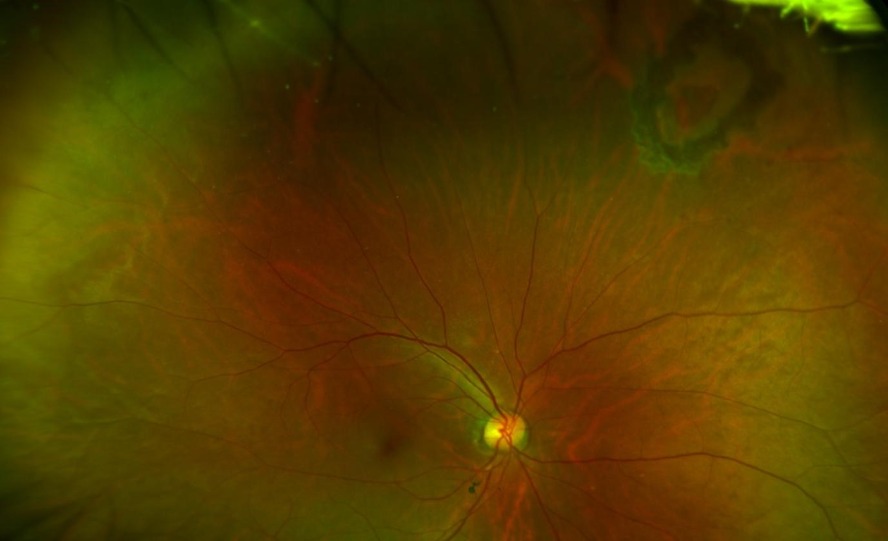
Retinal Tear
A retinal tear occurs when part of the retina separates from the outer layers of the eyeball. Photo showing retinal tear in the upper part that have been securely lasered.
If not treated early, retinal tears can lead to a more serious condition called retinal detachment and loss of vision.
Retinal Tear – What are the Symptoms?
Some possible symptoms include seeing an increased number of floaters and flashes of light and decreased vision.
Floaters are small, moving spots in the field of vision. A sudden increase in number or size of floaters may be due to retinal tears.
Flashes, the seeing of a bright light in your field of vision, is also a possible sign of a retinal tear. This happens when the vitreous pulls on the retina.
Retinal tears can progress to a more serious stage when retinal detachments occur. Early and prompt diagnosis of retinal tears is essential to prevent the problem from worsening.
Retinal Tear - Causes and Risk Factors
What causes retinal tears?
Retinal tears occur when the gel-like vitreous in the eye becomes more liquid and exerts an abnormal pull on the retina and thereby tearing it
What puts me at risk of retinal tears?
High myopia (short-sightedness) patients have a higher risk of retinal detachment due to thinning of the retina predisposing to the development of holes or tears.
Family history may be a factor.
Another risk factor is post cataract surgery especially if there is complication like vitreous loss.
Retinal Tear - Treatments
Retinal tears are usually treated with laser treatment to prevent the retinal tear from progressing into retinal detachment.
Laser treatment works by forming a scar around the retinal tear and prevents the liquid vitreous from causing a retinal detachment
Treatment of retinal tear is very successful with a success rate of 95%. Early treatment of retinal tear can preserve normal vision and prevent severe vision loss.
Retinal Tear - Post-surgery care
Need periodic review and if recurrence of increased symptoms of floaters or flashes, urgent examination of retina is needed to exclude new retinal tears
Disclaimer – Above are just general information and patients are urged to see their Eye Doctors for professional treatment.
